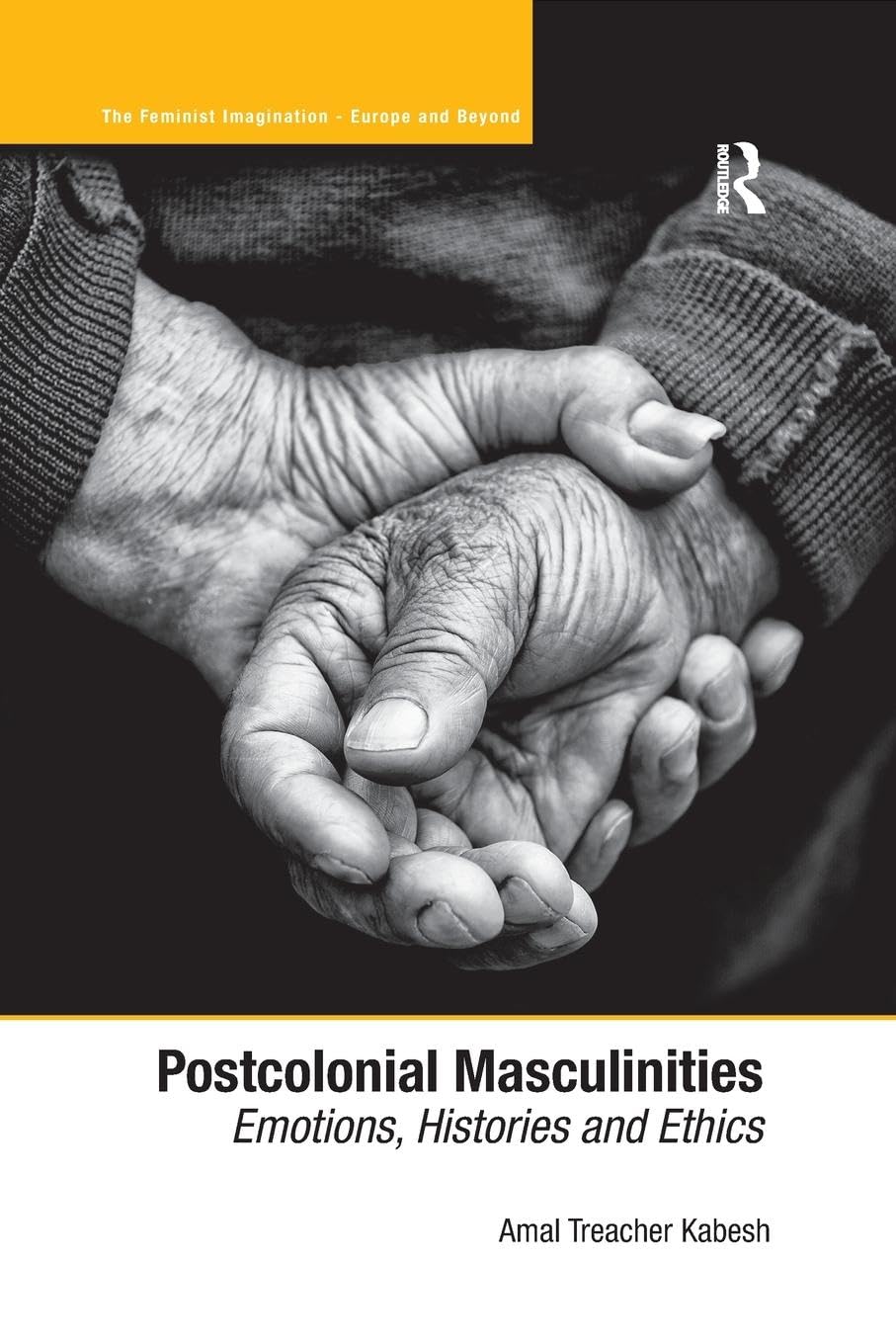Postcolonial Masculinities: Emotions, Histories and Ethics (The Feminist Imagination - Europe and Beyond)
Postcolonial Masculinities: Emotions, Histories and Ethics (The Feminist Imagination - Europe and Beyond) is backordered and will ship as soon as it is back in stock.
Couldn't load pickup availability
Genuine Products Guarantee
Genuine Products Guarantee
We guarantee 100% genuine products, and if proven otherwise, we will compensate you with 10 times the product's cost.
Delivery and Shipping
Delivery and Shipping
Products are generally ready for dispatch within 1 day and typically reach you in 3 to 5 days.
Book Details:
• Publisher: Taylor & Francis Ltd
• Author: Amal Treacher Kabesh
• Edition: 1
• Binding: Paperback
• Number of Pages: 196
• ISBN: 9781138268531
• Language: English
• Cover: Paperback
• Dimensions: 9.1 x 6.1 x 0.5 inches
About the Book:
Postcolonial Masculinities explores the complex and intertwined relationships between masculinities in the Middle East and the West. This groundbreaking work delves into the similarities and differences, challenging stereotypical narratives and the divisive discourse of 'othering' often employed in discussions of the so-called clash of civilizations. By focusing on both England and Egypt, Amal Treacher Kabesh investigates how masculinities are shaped by colonial and postcolonial histories, crossing boundaries of ethnicity, religion, and sexuality.
Rather than reinforcing the stark distinctions between Western and Middle Eastern masculinity, Kabesh presents a nuanced exploration of shared postcolonial masculine subjectivities. The book invites readers to reconsider entrenched perspectives by highlighting the common ground between seemingly disparate cultures. Postcolonial Masculinities is an essential read for those interested in cultural studies, gender studies, psychoanalysis, and the legacies of colonialism and postcolonialism.
This 196-page book provides an insightful analysis of how history and societal forces shape gender identities, making it an invaluable resource for social scientists, scholars, and anyone engaged in the study of masculinity, gender, and postcolonial theory.





